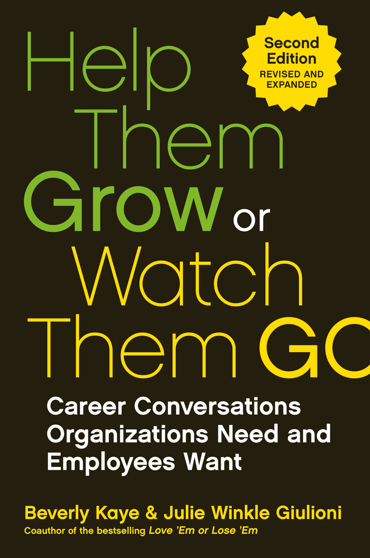Create a culture that means business™
Email address
Year-end reviews for employees are challenging – even for the most skillful of leaders. The reasons are varied. For instance, the way they’re scheduled in a concentrated fashion forces those with many direct reports to spend weeks on end planning and conducting non-stop conversations. The way they’re structured favors documentation of meaningful dialogue. The way they’re frequently tethered to a discussion of compensation promotes angst and disagreement even when performance and development are evaluated favorably.
Add to all of this demotivating and competition-inspiring requirements associated with rankings or limitations to the number of ‘5’s’ that can be assigned that are still present in many organizations. And the reality that many leaders are simply uncomfortable offering feedback to others during year-end reviews for employees.
But all of these standard challenges pale in the face of preparing for conversations about performance and career development over the course of recent months. After all, this year, leaders must also contend with issues such as:
- Lack of objective measures because expectations weren’t updated since everyone was running too fast
- Performance that wasn’t what was expected
- Development that was put on the back burner in service of mission critical activity
- A rise in burnout with a physically and emotionally exhausted staff
- An inability to ever fully express appreciation for the over-the-top contributions of some team members this year
- Difficulty discussing what the future may look like
Is it any wonder leaders are scratching their heads and trying to figure out how to bring closure to year-end reviews for employees this time around? The truth is that it’s going to be an entirely different conversation. But leaders can make it a positive experience for employees, the organization, and themselves. They can leverage this year-end dialogue for motivation and momentum forward if they’re able to draw upon and strike a balance between two key qualities: grace and accountability.

The key to successful year-end reviews for employees: grace and accountability
Grace refers to confronting the reality of this extraordinary year. In some cases, grace may translate to cutting people the appropriate and fair amount of slack, acknowledging that some things simply became impossible to do under the challenges that presented themselves recently. In other cases, it may mean holding the space for people to grieve lost opportunities – and even lost loved ones. In still other cases, it may mean offering a sounding board and release for legitimate frustrations, anxiety and stress. In all cases, grace is about humanity – allowing ourselves as leaders to be human – and treating others as the whole human beings they are as well.
At the same, time, year-end reviews for employees need to be a time to ‘account’ for one’s performance and development. Hence the need to balance grace with accountability. Despite this year’s bone-crushing challenges, leaders owe it to others to ensure that they continue to own their performance, effort, and the choices they made. Letting others know that despite barriers and setbacks, everyone is expected to bring the best they can to the workplace offers a consistency and structure that’s comforting to employees and necessary for the business. This year, it boils down to being fair – but real – about what could and should have been accomplished. And an honest conversation of this nature can be deeply developmental.
Striking the grace/accountability balance and turning year-end reviews for employees into dynamic opportunities to build pride, insights, relationships, trust, and motivation for the coming year require some small but significant adjustments to the standard conversation trajectory.
Accentuate and appreciate the positive
This is a year for celebrating everything and anything that went well. So, leaders should set the expectation that significant attention will be paid to successes by inviting employees to think deeply about their performance and development, and catalogue all of their wins in a lengthy brag book or company-wide platform. Consider kicking off an employee recognition program, where employees can easily send and receive recognitions in real-time. Have every recognition displayed on a company-wide newsfeed so your employees can feel publicly acknowledged, valued, and appreciated every day. Managers and leaders can even access their team’s recognition activity to track prior achievements and take them into account when it comes time for year-end reviews for employees. And when leaders are able to supplement the employee’s self-reporting during the review with additional observations and recognitions from peers, they will have a clearer understanding of their employees’ contributions.
Given the hurdles that most employees have faced recently, accomplishments deserve more than an annual years of service award. You need to build a culture of recognition and make recognition both frequent and inclusive. This approach demonstrates the value leaders place on others and sets a supportive tone for parts of the conversation that may be less celebratory in nature.

Dispassionately dissect the disappointments
In addition to successes, this year has presented nearly every employee with shortfalls, unmet goals, missed expectations, and partially achieved objectives. These can’t be overlooked. They must be explored, processed, and fully understood. While it would be easy to dismiss this year as an anomaly, it’s critical for people to own their performance – however things turned out. Giving employees a pass or writing off this extraordinary period of time would undermine accountability and the growth that comes with it.
Employees will benefit when instead leaders remain focused on issues and actions as they facilitate an exploration of what happened. Asking the following questions during your year-end reviews for employees can help:
- How did results differ from your original goals and expectations?
- What strategies did you implement or what actions did you take to make whatever progress was possible?
- Which of your strengths and talents supported what you were able to achieve?
- What impediments stood in your way?
- Which of these impediments made goal achievement impossible – and which simply made it more challenging?
- In retrospect, what additional or different steps might you have taken that could have changed the results?
A blame-free, objective discussion of this nature can make it safe for employees to own their performance and development shortfalls; but it also cultivates a climate of trust and transparency that will serve them far into the future.

Focus forward
Year-end reviews for employees can be tricky to navigate, but if you do handle them correctly, you will find an uptick in motivation and momentum as a result. Year-end reviews are unique opportunities to connect deeply with your employees, pause, and really reflect upon what occurred, and extract learnings and insights to fuel the future. Leaders who do this well will direct focus toward the future and help people leverage all that’s happened in a way that propels them forward. This means encouraging employees to identify concrete lessons and actions they can take in the coming year.
Striking that balance between grace and accountability requires thought, planning, and skillful execution. However, leaders who are willing to make the investment will find that their year-end reviews for employees will offer rich and insightful connections that will leave others stronger and better prepared for the challenges that lie ahead.
Looking for additional ideas and resources to ensure effective year-end employee performance and development reviews? Download our complimentary e-toolkit, Hot Mess? Dumpster Fire? Train Wreck? You Still Have to Conduct Year-End Reviews. In it, you’ll find a novel way to get employees to prepare, a roadmap to a productive conversation, the must-ask questions, pitfalls, tips for handling it remotely, and even strategies for addressing the dreaded money question.
Are you looking for more insights and top tips on how to navigate career conversations? Check out my book below.

